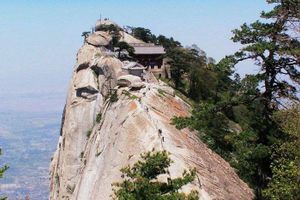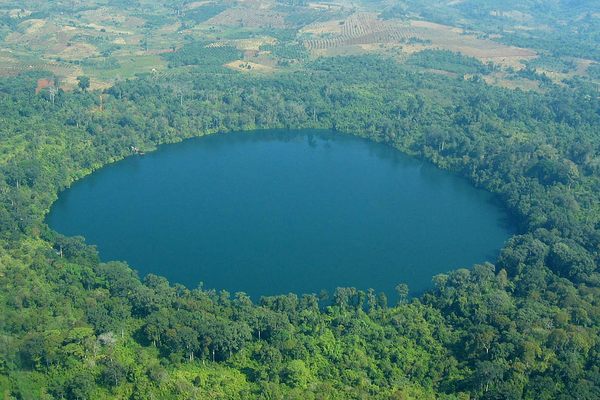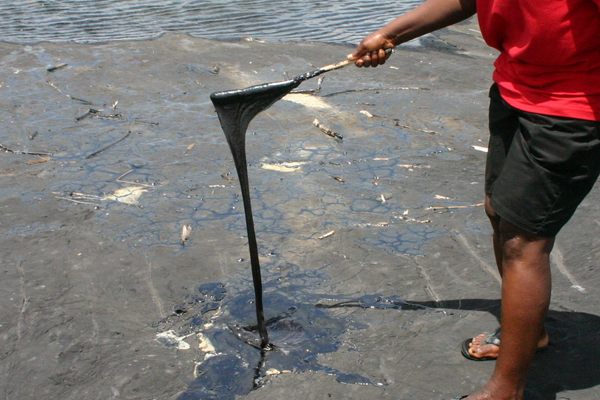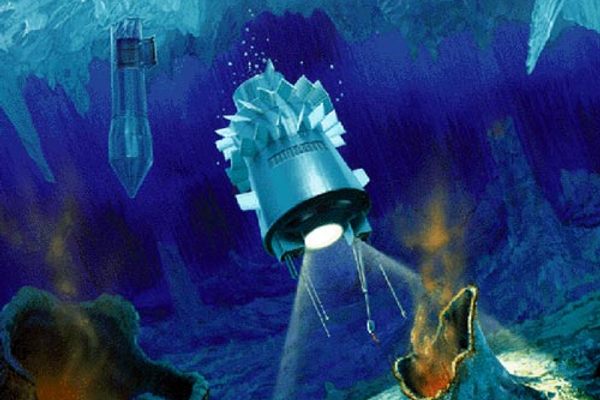About
When summer comes, the glassy water of Yuncheng Salt Lake in China's Shanxi Province turns a shocking rainbow. From above the lake looks like a painter's palette, with dabbles of magenta, green, and aquamarine across the landscape.
Down on the surface, a yearly ritual has taken place for millennia. Workers slowly and painstakingly shovel piles of salt that are left behind as the water evaporates. These hunks of white crystal have helped grant Yuncheng a place of cultural and political esteem, and the chemical reactions catalyze an otherworldly landscape that enchants locals and phone-wielding tourists alike.
Known as "China's Dead Sea" for its salinity, the vast lake has long been the focal point of Yuncheng's culture and economy. Chinese historians estimate that locals have consciously harvested salt from the lake for 6,000 years, and ancient human remains found in the area suggest that people may have realized the water's salty benefit even further back. By the sixth century, Yuncheng lake was responsible for a quarter of China's overall salt production. Local lore reports wars fought over possession of the lake, and nearby temples are dedicated to salt gods. The lake is connected to the signature tang in Shanxi's food, which is replete with salty soy sauce.
Today, most travelers come to the lake not to worship the salt gods, but to marvel at the landscape’s surreal charm. As opposed to the Dead Sea, which is filled with high concentrations of chloride that make it hostile to most forms of life, Yuncheng Lake is filled with sulfate, which supports a lush ecosystem. In the summer, algal blooms turn the water technicolor thanks to Dunaliella salina, an algae species that changes color when it reacts with salt. In winter, when the temperature dips below 23 degrees Fahrenheit, the salt forms crystals of mirabilite, also known as Glouber's Salt, transforming the landscape into twinkling winter fantasy.
Yuncheng salt was traditionally harvested for culinary use, through a five-step process that the Shanxi Province has officially recognized as a piece of the region's intangible heritage. Since the 1980s, however, producers have abandoned this process and pivoted toward industrial harvesting. Locals hope that the influx of visitors interested in marveling at the lake can also help inspire the preservation of local salt harvesting traditions, and of the rich ecosystem that has given rise to an extraordinary natural beauty.
Related Tags
Know Before You Go
There are several buses that run from downtown Yuncheng to the lake. Other salt lakes in China have suffered extreme pollution due to tourist attention. Help keep Yuncheng from the same fate by carrying your trash out with you.
Community Contributors
Added By
Published
December 2, 2019
Sources
- https://www.nytimes.com/2002/02/24/books/chapters/salt.html
- https://www.jstor.org/stable/pdf/eastasiascietech.39.7.pdf?casa_token=C226jbI4KKUAAAAA:ht1ilwFLvSY-kPYqVX6Js-bVw-v1XcbCZnv5nEziOfVaoWcuyWztXFcxaYad9Tsnz3FujseabvAzcmKt1ctNhUIrVnUlXtrDSGUsiaoocCf_AZjOZLfg
- http://www.chinadaily.com.cn/m/shanxi/datong/food.html
- http://www.xinhuanet.com/english/2019-01/08/c_137728615.htm
- http://www.xinhuanet.com/english/2019-02/07/c_137804901.htm
- https://www.scmp.com/news/china/society/article/2157615/hordes-tourists-damaging-chinese-salt-lakes-pristine-environment
- https://www.discoverchinatours.com/travel-guide/yuncheng/yuncheng-salt-lake/


























